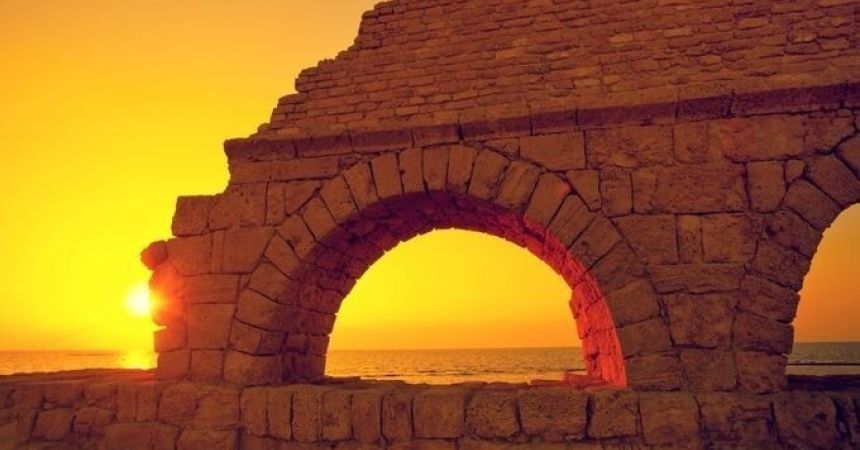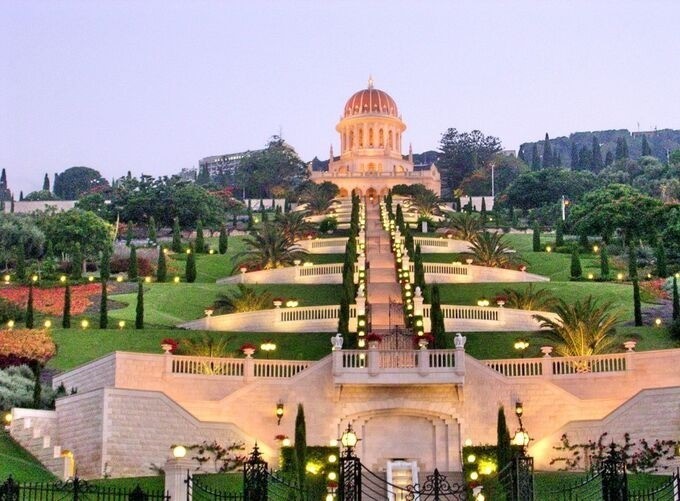
Best Time to Visit Israel: Weather and Travel Tips
Israel, a land of diverse landscapes, rich history, and vibrant culture, is a year-round destination that offers unique experiences in every season. Whether you are drawn to its religious sites, beaches, deserts, or urban life, understanding the best time to visit Israel can enhance your travel experience. This comprehensive guide explores the weather patterns, festivals, and activities to help you decide the ideal time for your visit.
Overview of Israel's Climate
Israel's climate varies significantly across its regions, from the Mediterranean climate along the coast to the arid conditions of the Negev Desert and the cooler highlands of the Galilee and Golan Heights. Here’s a brief overview of the climatic zones:
Coastal Areas (Tel Aviv, Haifa)
- Mediterranean Climate: Hot, humid summers and mild, wet winters.
- Summer Temperatures: Average highs of 28-32°C (82-90°F).
- Winter Temperatures: Average highs of 16-18°C (61-64°F).
Inland Areas (Jerusalem)
- Mediterranean Climate: Hot, dry summers and cool, wet winters.
- Summer Temperatures: Average highs of 25-30°C (77-86°F).
- Winter Temperatures: Average highs of 10-15°C (50-59°F), with occasional snow.
Desert Regions (Negev, Dead Sea, Eilat)
- Arid Climate: Extremely hot summers and mild winters.
- Summer Temperatures: Average highs of 35-40°C (95-104°F), with Eilat reaching higher.
- Winter Temperatures: Average highs of 20-25°C (68-77°F).
Northern Regions (Galilee, Golan Heights)
- Temperate Climate: Warm summers and cold, wet winters.
- Summer Temperatures: Average highs of 25-30°C (77-86°F).
- Winter Temperatures: Average highs of 10-15°C (50-59°F), with snow in higher elevations.
Seasons in Israel: What to Expect
Spring (March to May)
Spring is one of the best times to visit Israel, with mild temperatures, blooming landscapes, and numerous festivals.
Weather
- Temperatures: Ranging from 15-25°C (59-77°F) across the country.
- Rainfall: Decreasing as the season progresses, with occasional showers in March and April.
Activities
- Nature and Hiking: Ideal for exploring Israel's national parks, nature reserves, and hiking trails. The Negev Desert blooms with wildflowers during this time.
- Religious Sites: Pleasant weather for visiting Jerusalem, Bethlehem, and other religious sites.
- Beaches: Comfortable for beach activities, especially in Tel Aviv and Eilat.
Festivals
- Passover (Pesach): Usually falls in April, a significant Jewish festival commemorating the Exodus from Egypt. Many businesses close, and special foods are prepared.
- Easter: Celebrated by Christians, especially in Jerusalem and Nazareth, with processions and services.
- Independence Day (Yom Ha'atzmaut): Celebrated in April or May, marking the establishment of the State of Israel with fireworks, parades, and parties.
Summer (June to August)
Summer in Israel is hot and busy, with many tourists flocking to the beaches and historical sites.
Weather
- Temperatures: Highs of 28-35°C (82-95°F) in most areas, exceeding 40°C (104°F) in the desert regions.
- Rainfall: Virtually none, especially in July and August.
Activities
- Beaches: Peak season for beachgoers, with the Mediterranean and Red Sea coasts bustling with activity.
- Water Sports: Ideal for snorkeling, diving, and other water sports in Eilat and along the coast.
- Nightlife: Tel Aviv’s nightlife is vibrant, with many outdoor events, festivals, and parties.
Festivals
- Shavuot: A Jewish festival usually in late May or June, celebrating the giving of the Torah, marked with dairy meals and all-night study sessions.
- Jerusalem Film Festival: Held in July, featuring international films and cultural events.
- Tel Aviv Pride: One of the largest LGBTQ+ events in the world, held in June with parades, parties, and cultural events.
Autumn (September to November)
Autumn is another excellent time to visit Israel, with cooler temperatures and fewer tourists.
Weather
- Temperatures: Ranging from 15-28°C (59-82°F), gradually cooling down.
- Rainfall: Starts to increase in November, especially in the northern and central regions.
Activities
- Cultural Sites: Ideal weather for exploring archaeological sites, museums, and historical landmarks.
- Hiking and Nature: Great for hiking in the Galilee and Golan Heights, with comfortable temperatures and beautiful autumn foliage.
- Wine Tours: Harvest season in Israel’s wine regions, perfect for vineyard tours and wine tasting.
Festivals
- Rosh Hashanah: The Jewish New Year, usually in September, marked by festive meals and religious services.
- Yom Kippur: The Day of Atonement, the holiest day in Judaism, observed with fasting and prayer.
- Sukkot: The Feast of Tabernacles, celebrated with outdoor meals in temporary structures called sukkahs.
- Tel Aviv International Documentary Film Festival (Docaviv): Held in October, showcasing documentary films from around the world.
Winter (December to February)
Winter in Israel is mild but can be wet, especially in the northern and central regions.
Weather
- Temperatures: Average highs of 10-18°C (50-64°F), colder in Jerusalem and the Golan Heights.
- Rainfall: Frequent in the northern and central regions, with occasional snow in Jerusalem and the Golan Heights.
Activities
- Religious Sites: Quieter and less crowded, making it a good time to visit Jerusalem, Bethlehem, and Nazareth.
- Desert Exploration: The Negev Desert and Dead Sea area are pleasant for hiking and outdoor activities.
- Skiing: Mount Hermon in the Golan Heights offers skiing and snowboarding opportunities.
Festivals
- Hanukkah: The Festival of Lights, celebrated in December with the lighting of the menorah, special foods, and festivities.
- Christmas: Particularly significant in Bethlehem and Nazareth, with processions, services, and celebrations.
- New Year’s Eve: Celebrated with parties and events, especially in Tel Aviv.
Best Time for Specific Activities
Spring and autumn offer mild temperatures and fewer crowds, making it ideal for exploring Jerusalem, Bethlehem, Nazareth, and other religious sites.
Beach Holidays
Best Time: Summer
Summer is the peak season for beach activities, with warm temperatures and plenty of sunshine. Tel Aviv, Haifa, and Eilat are popular destinations.
Hiking and Nature
Best Time: Spring and Autumn
These seasons provide comfortable temperatures for hiking in the Galilee, Golan Heights, and Negev Desert. Spring also offers blooming wildflowers and lush landscapes.
Wine Tasting
Best Time: Autumn
Autumn is harvest season in Israel's wine regions, such as the Judean Hills and Galilee, offering a chance to visit vineyards and enjoy wine tasting events.
Cultural Festivals
Best Time: Spring and Summer
Spring and summer are filled with cultural festivals and events, including the Jerusalem Film Festival, Tel Aviv Pride, and various religious celebrations.

Desert Exploration
Best Time: Winter
Winter is the best time to explore the Negev Desert and the Dead Sea, with mild temperatures and fewer tourists.
Practical Tips for Visiting Israel
Travel Preparation
- Visa Requirements: Check if you need a visa to enter Israel. Many nationalities can enter visa-free for short stays.
- Currency: The official currency is the Israeli Shekel (ILS). Credit cards are widely accepted, but it's good to carry some cash for small purchases.
- Language: Hebrew and Arabic are the official languages. English is widely spoken in tourist areas.
Accommodation
- Booking: Book your accommodation in advance, especially during peak seasons and major festivals.
- Types: Israel offers a range of accommodation options, from luxury hotels and boutique guesthouses to budget hostels and Airbnb rentals.
Transportation
- Public Transport: Israel has an efficient public transport system, including buses, trains, and shared taxis (sheruts).
- Car Rentals: Renting a car offers flexibility, especially for exploring remote areas like the Negev Desert and Golan Heights.
Health and Safety
- Health Precautions: Tap water is safe to drink, and healthcare services are excellent. Make sure you have travel insurance.
- Safety: Israel is generally safe for tourists, but stay informed about local news and travel advisories.
Respecting Local Customs
- Dress Modestly: Especially important when visiting religious sites.
- Observing Shabbat: From Friday evening to Saturday evening, many businesses close. Plan accordingly.
- Photography: Always ask for permission before taking photos of people, especially in religious or conservative areas.
Sample Itineraries Based on the Season
Spring Itinerary
Day 1-2: Jerusalem
- Explore the Old City, Western Wall, Church of the Holy Sepulchre, and Temple Mount.
- Visit Yad Vashem and the Israel Museum.
Day 3-4: Tel Aviv
- Relax on the beaches and stroll along Rothschild Boulevard.
- Visit the Tel Aviv Museum of Art and Carmel Market.
Day 5: Haifa and Akko
- Visit the Bahá'í Gardens in Haifa.
- Explore the Old City of Akko.
Day 6: Galilee
- Visit Nazareth and the Sea of Galilee.
- Explore Capernaum and the Mount of Beatitudes.
Day 7: Dead Sea and Masada
- Float in the Dead Sea and visit Masada.
Summer Itinerary
Day 1-2: Tel Aviv
- Enjoy the beaches, nightlife, and cultural sites.
- Visit Jaffa and Neve Tzedek.
Day 3: Caesarea and Haifa
- Explore the ancient port city of Caesarea.
- Visit the Bahá'í Gardens in Haifa.
Day 4: Akko and Rosh Hanikra
- Discover the Old City of Akko.
- Visit the Rosh Hanikra grottoes.
Day 5-6: Eilat
- Relax on the Red Sea beaches and explore Coral Beach Nature Reserve.
- Enjoy water sports and desert excursions.
Day 7: Jerusalem
- Visit key religious sites and experience the city's vibrant markets.
Autumn Itinerary
Day 1-2: Jerusalem
- Explore religious and historical sites in the Old City.
- Visit Yad Vashem and the Mount of Olives.
Day 3-4: Galilee and Golan Heights
- Visit Nazareth, the Sea of Galilee, and Capernaum.
- Explore the Golan Heights and enjoy a wine tasting tour.
Day 5: Haifa and Akko
- Visit the Bahá'í Gardens and explore the Old City of Akko.
Day 6: Tel Aviv
- Enjoy the beaches, cultural sites, and vibrant nightlife.
Day 7: Dead Sea and Masada
- Experience the unique sensation of floating in the Dead Sea and visit the ancient fortress of Masada.
Winter Itinerary
Day 1-2: Jerusalem
- Visit religious sites, including the Western Wall and Church of the Holy Sepulchre.
- Explore Yad Vashem and the Israel Museum.
Day 3: Bethlehem and Jericho
- Visit the Church of the Nativity in Bethlehem.
- Explore the ancient ruins of Jericho.
Day 4: Dead Sea and Ein Gedi
- Float in the Dead Sea and hike in the Ein Gedi Nature Reserve.
Day 5: Negev Desert
- Explore the stunning landscapes of the Negev Desert, including Makhtesh Ramon.
Day 6: Eilat
- Enjoy the mild winter weather in Eilat, with its beaches and coral reefs.
Day 7: Tel Aviv
- Relax on the beaches and explore the city's cultural sites.
Discover Israel: A Year-Round Travel Gem
Israel is a captivating destination that offers something for every traveler, no matter the season. From the historical and religious significance of Jerusalem and Bethlehem to the modern vibrancy of Tel Aviv and the natural beauty of the Negev Desert and Galilee, there is always something to explore and experience. By understanding the best times to visit and planning your itinerary accordingly, you can make the most of your trip to this remarkable country.



